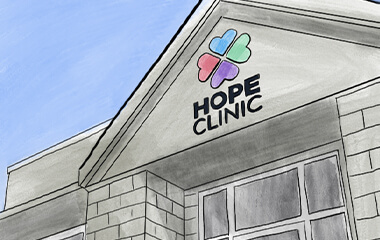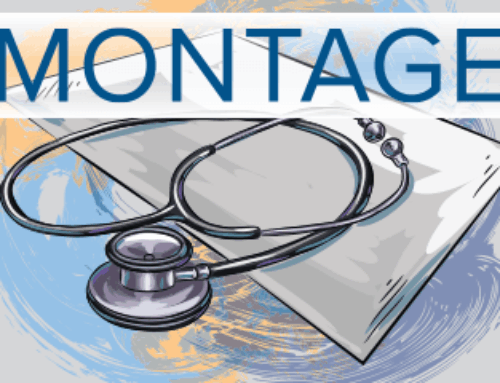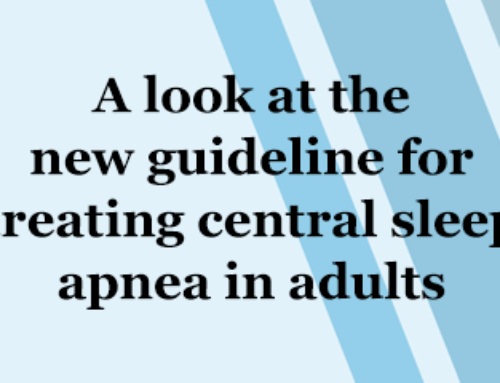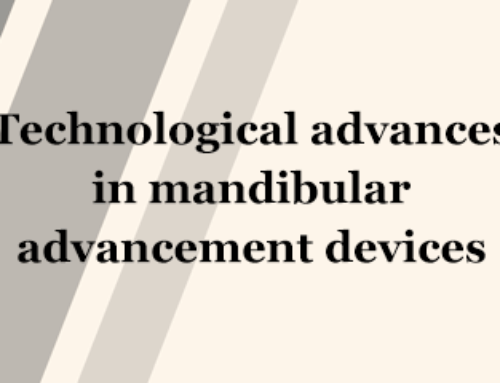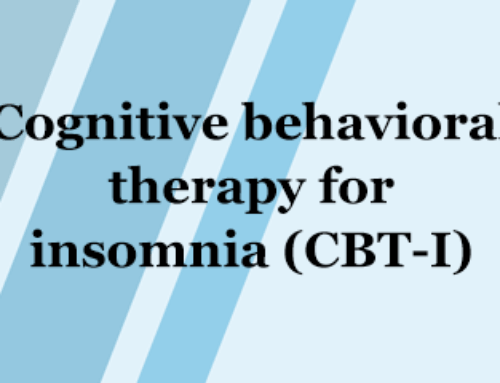By Galit Levi Dunietz, PhD, MPH
Good sleep is fundamental for health and quality of life, yet healthy sleep is inaccessible for some of the most vulnerable members in our society. Indeed, racial and ethnic minorities, low-income working adults, immigrants and refugees tend to have higher prevalence and severity of sleep disorders. The lack of health insurance drives health inequities, and people who are most susceptible to infections and chronic diseases, including sleep disorders, remain undiagnosed and untreated. These people are unable to live life to the fullest.
Southeast Michigan is home to diverse communities of residents, including immigrants and refugees, of which 13% live below the poverty line, despite often working multiple jobs. For these individuals and families, medical care is a luxury they can rarely afford. Even if they do see a doctor, there is no guarantee they can follow their treatment plan. In 1982, the Hope Clinic was established in Ypsilanti, Michigan, to provide free medical and dental care, extensive food programs, and counseling to adults who lack health insurance and live in nearby communities. The medical care provided includes primary care and various specialties. However, there was a desperate need for sleep care, according to clinic director Dr. Martha Kershaw.
To improve access in southeast Michigan, we established a free sleep medicine service at Hope Clinic. The practice of sleep medicine requires expensive devices for diagnosis and treatment of sleep disorders. With no health insurance to cover clinical operations, we applied for the Community Sleep Health and Public Awareness Grant offered by the American Academy of Sleep Medicine Foundation. Our application was successful, and in September 2021, amid the COVID-19 pandemic, we established our first monthly sleep clinic. The sleep clinics rely on volunteer sleep physicians and respiratory therapists from the University of Michigan Sleep Disorders Center. Medical assistance and administrative support for scheduling and disbursement of medical equipment were provided by Hope Clinic at no cost. Thus, the AASM Foundation funds were designated for purchasing devices for home sleep apnea testing and PAP treatment.
The pandemic offered ample challenges to clinical operations, but the biggest obstacle was the massive recall of CPAP devices that resulted in a supply shortage and continues to threaten the health of current and future patients. To maintain our monthly sleep clinic, we reached out to key local CPAP vendors who work with our sleep disorders centers and inquired about gently used devices. The vendors were overwhelmingly supportive of our project and committed to donate multiple CPAP devices or provide them at minimal cost. This positive response allowed us to continue with treatment, as planned.
During the first few months, we learned that sleep care was in high demand among the patients of Hope Clinic. We also realized that most referred patients had moderate-to-severe obstructive sleep apnea, concurrent with other chronic conditions. To date, the free sleep care program has held more than 15 clinics with a total of 75 appointments for new and returning patients, who saw volunteer sleep physicians and respiratory therapists. These patients were highly motivated to improve their sleep and eager to start treatment. Indeed, our sleep service has had a lower no-show rate than all other subspecialties at Hope Clinic.
I would like to share with you the story of Mr. G, a 60-year-old employed man without health insurance. Mr. G. was referred to our sleep care program due to snoring, poor sleep quality, daytime sleepiness and morning headaches. Mr. G. met with a sleep physician volunteer who evaluated him for obstructive sleep apnea with a home test and then diagnosed him with severe sleep apnea. For treatment, Mr. G. met with our respiratory therapist, who gave him a new PAP device, helped him with the process of mask fitting, and provided guidance on PAP use. In the return visit, Mr. G. reported he is doing great, has renewed energy, and both he and his partner are getting quality sleep thanks to the PAP therapy.
While the AASM Foundation grant provided support for one year, the free sleep clinic is thriving and will continue throughout 2024. We have a team of enthusiastic and committed clinician volunteers and a sufficient supply of new CPAP machines. However, we are looking for resources to purchase sleep apnea testing devices and for additional local clinician volunteers.
We are grateful to be able to support the mission of the AASM Foundation and excited to improve sleep health among vulnerable adults who live in our surrounding communities and experience poverty. We believe that access to health care is a human right and will continue our free sleep clinic for the years to come.
Galit Levi Dunietz, PhD, MPH, is an associate professor in the department of neurology and division of sleep medicine at the University of Michigan.
This article appeared in volume eight, issue three of Montage magazine.

